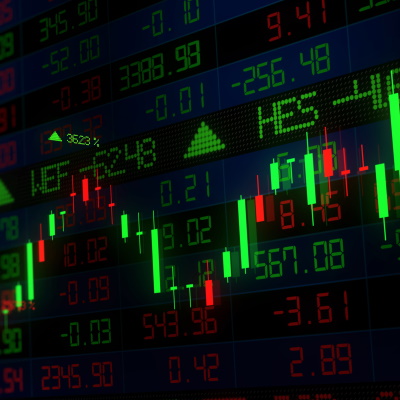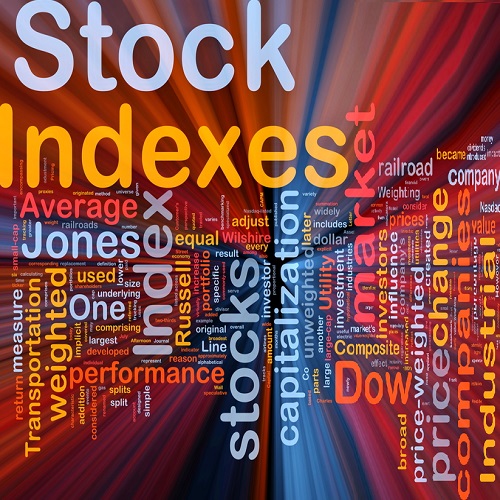What is an Index – An In-Depth Guide
What is an index? In our article, we elaborate on this term and what role it plays in the stock market. Read more with Queensway.

What is an Index – A Definition
A stock index is an indicator that measures the value of a specific stock exchange. It provides a general overview and a factual update on whether the stock market is overvalued or undervalued.
In a broader perspective, an index is indicative of the economic condition of the country it is domiciled in, the economic health of a particular industry, or simply, the sentiments of traders and investors.
Types of Indices
Index trading, which is largely done online, is based on the value of an underlying index. It is mainly retail traders who trade indices, although many funds, futures and ETFs also track indexes for institutional investors, too.
While the basic concept of trading in stocks deals with buying and selling of individual company shares, the advent of exchange traded funds (ETFs) many which follow indices, have made stock indices more relevant than before.
A national stock index is one that tracks and shows the performance of the stock market of a particular nation. Essentially, this is an indicator of investor sentiment with regards to the state of the nation’s economy.
Over the years there have been a variety of indices that track specific markets and their growth. One that tracks almost all publicly traded companies within the United States of America is the Wilshire 5000 index.
If you watch the news, you will undoubtedly have come across the S&P 500, the Indian NIFTY, the British FTSE, and the Japanese Nikkei 225. These are considered to be the largest market indices and are made up of all the largest companies that trade on the respective national stock exchanges.
Indices vs. Indexes
Before we continue, let’s put this acorn to rest. There is no difference between these two words, and they both signify the plural of the term index. Simply, indices is the Latin form (from the singular indic), and therefore preferred by people of literary pretensions. But they both signify to indicate – from in (towards) and dicare (to make known).
Some sources will insist that “indexes” is the non-technical term, still leaving indices to the pretentious few. In fact, a cursory google search reveals 420 million results for “indices” versus 9.8 billion for “indexes”.
So use either one. They’re both totally and legitimately good!
Dow Jones Industrial Average
The Dow Jones Industrial Average is currently the oldest stock market index within the United States and has been operating since the 19th century. The index tracks 30 stocks that follow a wide variety of market sectors with the exception of utility companies and the transportation sector. The Dow almost never changes the companies it tracks unless it is completely necessary.
S&P 500
The S&P 500 is much larger than the Dow. Their index currently lists 500 major companies. The S&P 500 replaces its companies on a frequent basis and covers almost all industries within the USA.
Nasdaq Composite
The Nasdaq Composite is used as a performance gauge for the technology sector by many investors worldwide, due to the fact that its list has some of the most influential technology companies and tech stocks listed on the Nasdaq Stock exchange – the first in the US to be electronically traded.
How are indexes created?
Indices definitions vary. For different indexes, the companies are selected according to different parameters. In some markets or exchanges, the index is comprised of the companies that have the largest market capitalisation. There may be fifty to five hundred companies on such a list, such as the S&P 500 but there may also be as little as 30, as in the case of the Dow Jones Industrial Average, which is based on stock price alone. There are indices which are based on industry sectors and some indices are a compilation of economic data, such as the Purchasing Managers Index (PMI), sentiment indexes, and so on.
As mentioned earlier, there are a large number of indices that track all sorts of companies and relative information. These are considered to be specialised indices and one can keep track of stocks depending on various criteria which include company size or management type.
In the earliest stages, a stock index would simply provide a general idea of how the stock market is faring and if there is potential for gloom or boom. But over recent years with indices trading often defining the online trading environment, the value and trend of an index are more important than the value of a particular share within it.
In short:
A stock index is the market value allotted to a list of companies which have been selected by the stock exchange to be representative of the entire stock market. On any stock exchange, there can be hundreds or thousands of companies listed. For anyone interested in trading stocks, it is virtually impossible to keep track of the movement of share prices of every company. Thus, the index acts as a facilitator for indices trading.
It acts as a barometer for investors and traders because a small change, positive or negative, can indicate a larger buy or sell-off of stocks. The simple explanation is that an index would lose value when there are more sellers of stocks than buyers while it would gain value when there are more buyers than sellers, thus indicating whether the market is bullish or bearish.
There are literally hundreds of index types that cover the entire globe. For any budding investors or traders looking to begin their journey through the world of trading, it is vital that they familiarise themselves with the many different indexes.






